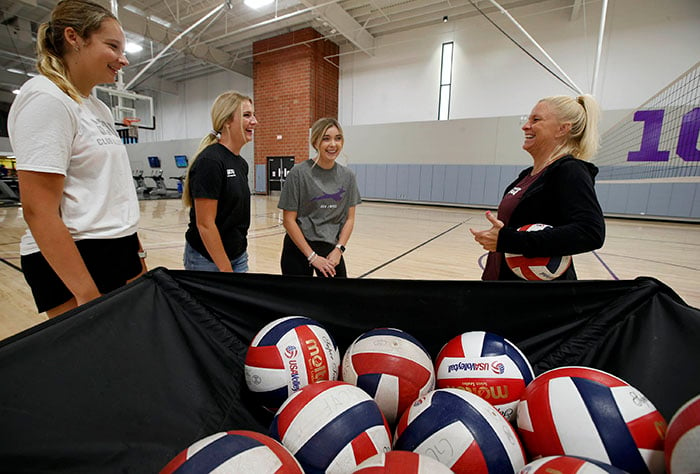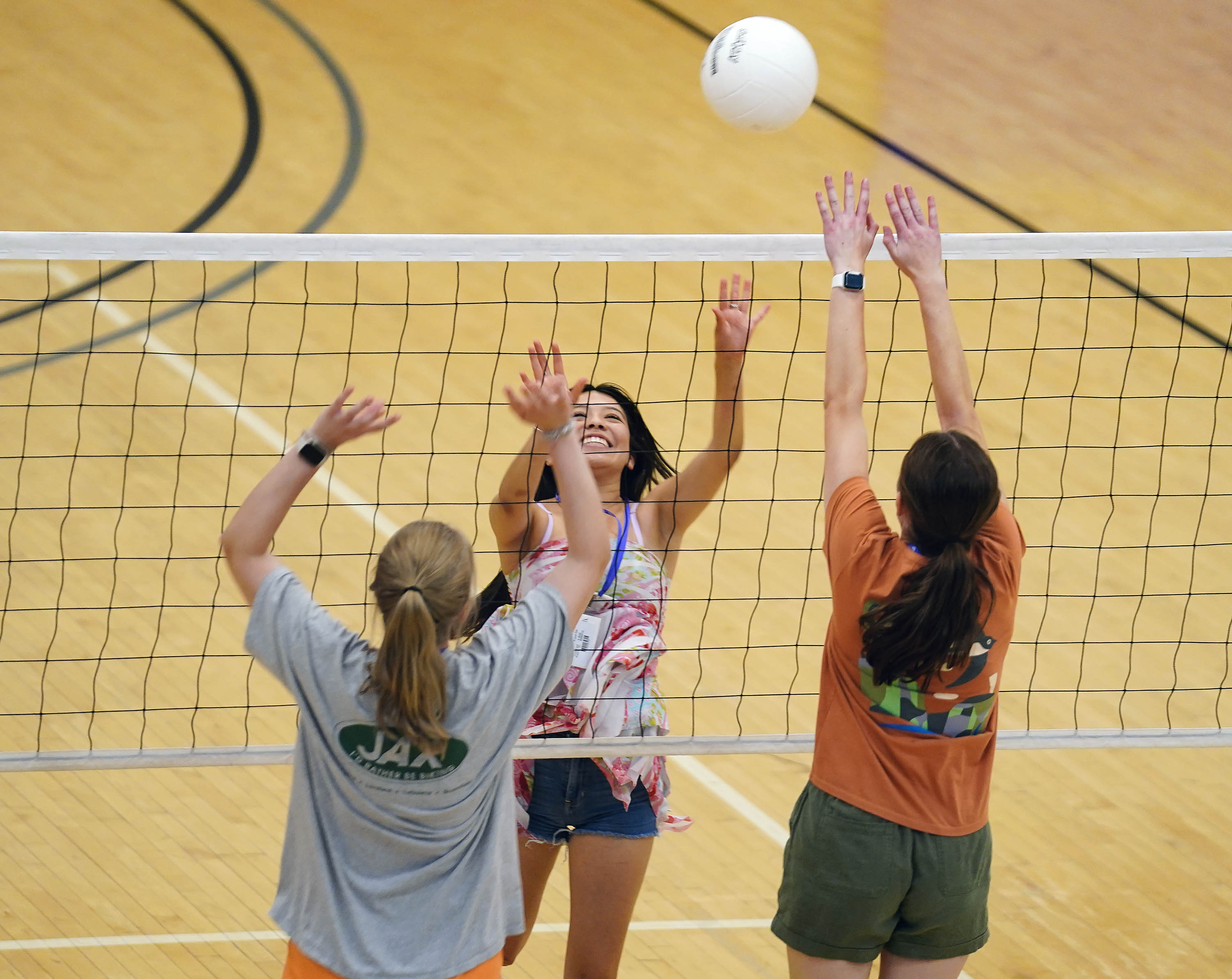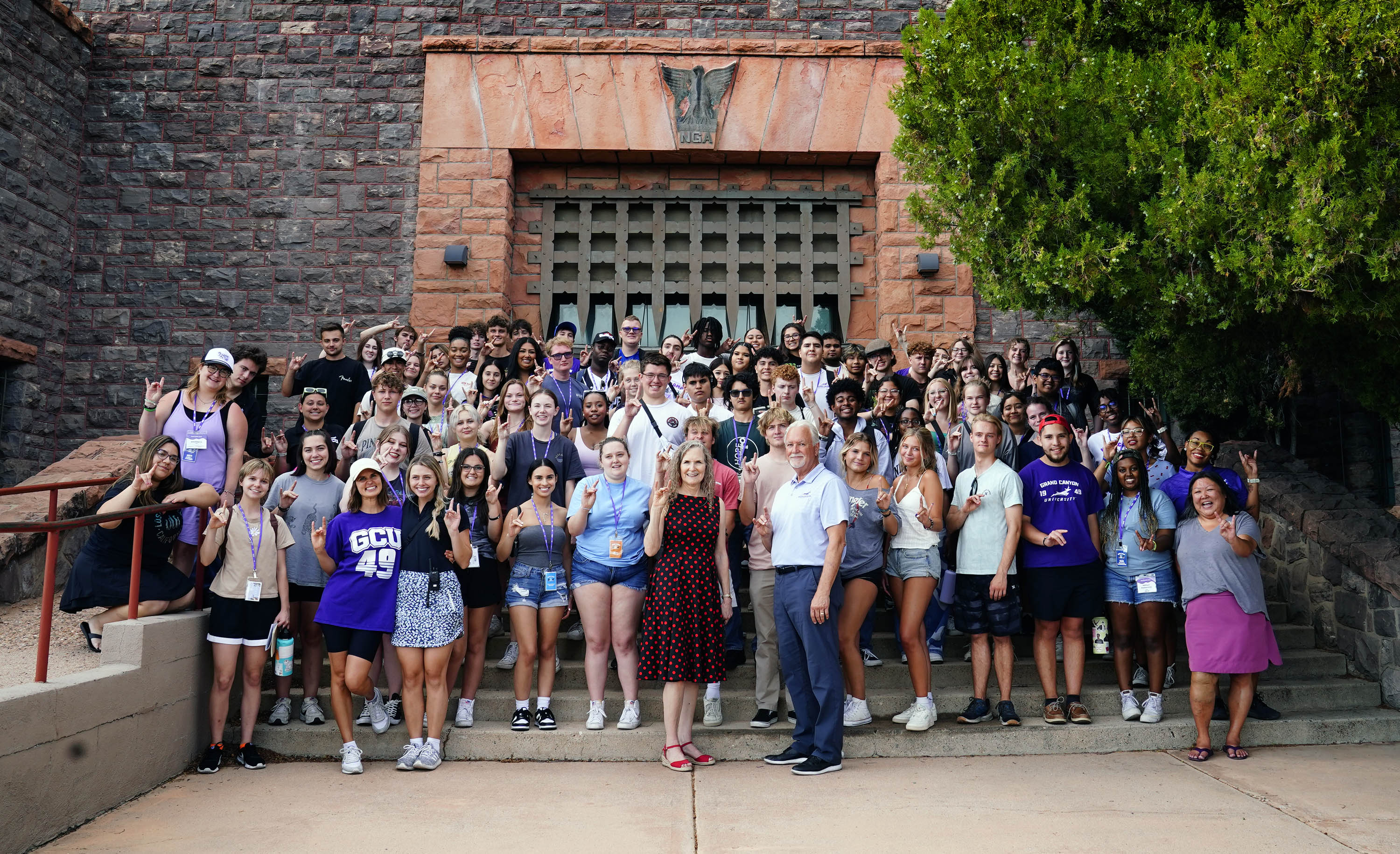
Story by Mike Kilen
Photos by Ralph Freso
GCU News Bureau
Cori Araza boiled down the reason that 140 Arizona educators gathered at Grand Canyon University on Thursday.
“We are teaching teachers how to teach students how to behave,” said Araza, Senior Project Director for GCU’s K12 Educational Development, which hosted the Arizona Positive Behavioral Interventions and Supports Summer Institute on campus.
If that sounds huge, it is.
“The number one issue in education in Arizona is student behavior,” Araza said. “Post pandemic, kids just don’t know how to behave in school. They are at a lower level academically, and teachers are burned out. We are in a huge shift. We’ve lost so many teachers. We have new teachers. We have students who have lost academic time and behavior time.
“A lot of teachers I know say the seventh graders act like fifth graders now. We will get them back, but losing that in-person learning was really a detriment.”
One solution is utilizing proven methods put into practice in schools across the country. Positive Behavioral Intervention and Supports (PBIS) is a three-tiered framework to improve student outcomes.
The nonprofit Positive Behavioral Intervention and Supports of Arizona promotes data-based methods that involve everything from classroom management and disciplinary issues to creating environments that are less dangerous and exclusionary and are more engaging and responsive.

“It’s probably the most popular student behavioral program in the nation,” said Araza, who led a breakout session on how to create buy-in for the program among students and staff.
“It’s the why that drives behavior in schools. So teachers here are learning tips, tricks and strategies to not only help their students but their colleagues buy in. For example, if we reward kids for doing something right rather than punishing them for doing something wrong, they hear a positive message regarding behavior, not a negative one.”
It works, as their data and personal experiences indicate.
“You remember going to high school and the teachers who say, ‘Don’t do that’ and ones who were more concerned, more loving,” she said. “So it’s about reframing poor behavior. We’re not saying poor behavior doesn’t happen, but instead of pointing out each time the child behaves poorly, you actually point out each time they do something well.”
PBIS of Arizona is a professional learning community made up of educators who implement the practices and support teachers with conferences, quarterly meetings, data and information. The summer institute showcased GCU’s commitment to community, organizers said, by offering GCU Arena for its keynote address and the College of Education Building for its breakout sessions. Educators said they appreciated the chance to brainstorm on-the-ground ways to implement PBIS.
“What we want to do is create safe and supportive environments where students are getting learning time back, where teachers aren’t losing learning time because of student behaviors,” said Jeremy Gibson, the organization’s regional director. “We do that by implementing behavior systems.”

A key component is getting teachers involved in the practice because students will follow their lead.
“This was one of the most challenging years in education,” said Dr. Joe Roselle, PBIS of Arizona executive director.
So it’s important today to celebrate the safety and success of PBIS in schools in the community, using data that is compiled by the organization on the initiative, he said in his opening remarks.
“One of the things I learned from our partners at Grand Canyon University is to engage our faith-based partners and nonprofits and education partners in order to celebrate what our kids are doing,” he said. “If you are keeping your successes inside your school building, you are missing out. Your data tells your story. How are you telling it?”
Celeste Nameth, an education program specialist with the Arizona Department of Education who does PBIS training statewide, said the most important factors in implementing these practices are administrator and staff buy-in.
She said it’s important to provide clear direction and the desired results — “more time in class and less time in school and out-of-school suspensions or in the office waiting for the principal to deal with them,” Nameth said.
“So make sure at the end you know where you want to get to — more time to teach. You are not going to have to deal with all those behavior issues all the time that disrupt learning. Ultimately, years down the line, it will impact grades. If they are in class more, they will learn more.”
Grand Canyon University senior writer Mike Kilen can be reached at mike.kilen@gcu.edu or at 602-639-6764.
****
Related content:
GCU Today: First International Christian STEM event takes wing
GCU Today: GCU-Empower union has students coming, going










